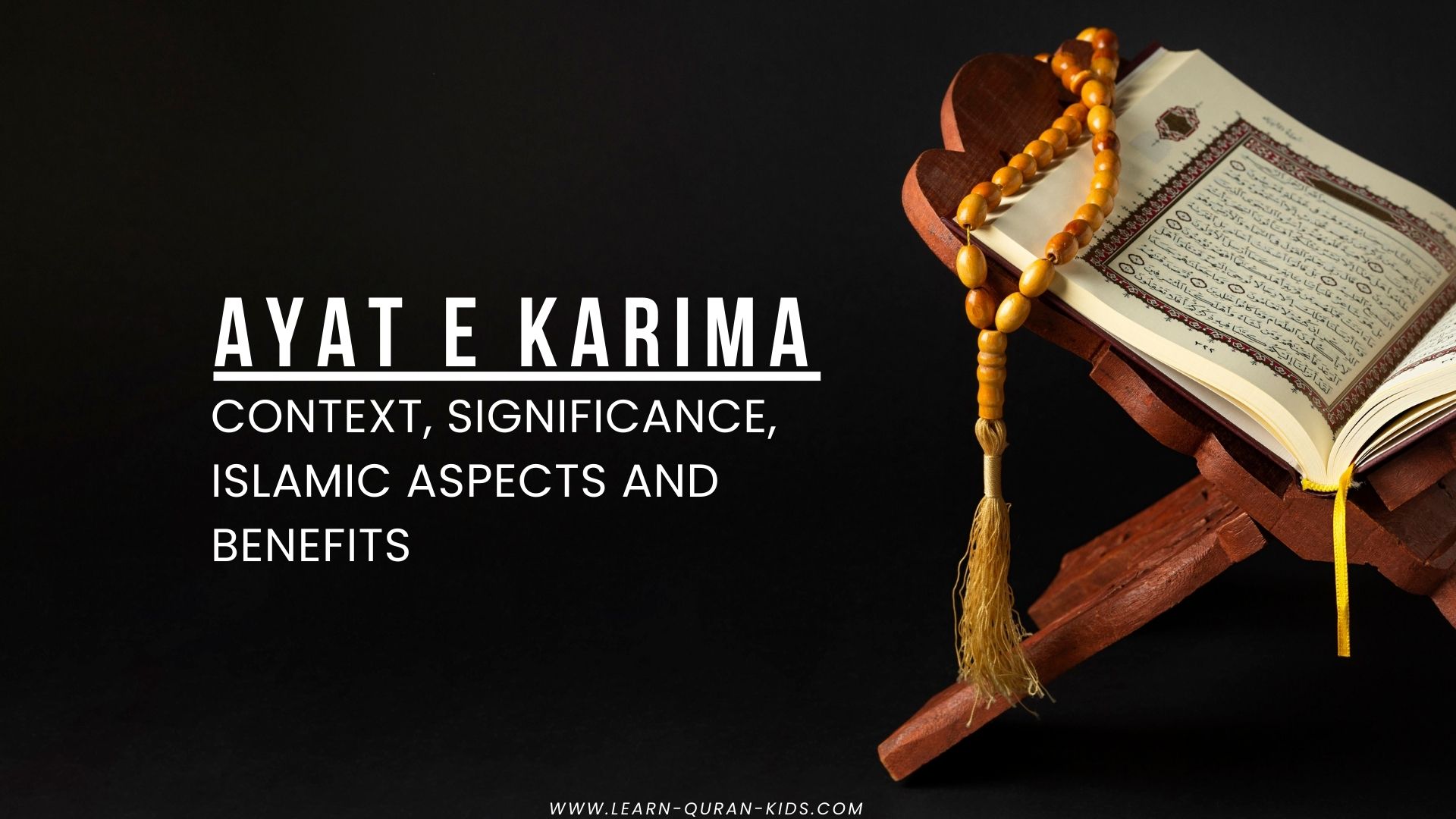Ayat e Karima
Ayat e Karima is a beautiful and semantic verse encouraging a person to repent his sins. It also entices their heart to thank God for his rewards. Another critical point is that the Ayat e Karima is also a natural prayer. The reciter has forgiveness and the Lord’s help to protect him. Muslims wish the Lord forgiveness and goodness through the recitation of this verse. This strengthens their spirituality and creates a state of comfort, peace, and contentment in their heart.Context of Ayat e Karima
The ayat e Karima is Surah Al-Anbiya, verse 87, which describes the prophet and the inviter Younas. This verse recalls an incident of Younas. The event was that Hazrat Younas (عليه السلام) tried to call his people in the way of Allah, but the nation did not respond to him. Nevertheless, Hazrat Younas (عليه السلام) continued his call, inviting the nation to worship Allah again. In Ayat Karima, Allah mentioned that Allah punished him when Hazrat Younas (عليه السلام) went into anger. He remained in the stomach of a fish for forty days and then repented his doings. Hazrat Younas (عليه السلام) prayed secretly in the darkness and summoned Allah. In his prayer, he was repenting not only for his sins but also for their people.Arabic Text: لَّا إِلَـٰهَ إِلَّا أَنتَ سُبْحَانَكَ إِنِّي كُنتُ مِنَ الظَّالِمِينَ Urdu Translation : اے اللہ! تیرے سوا کویٔی معبود نہیں ہے، تو پاک ہے، بے شک میں ظالموں سے ہوں English Translation: There is no Allah but you; you are glorified. Indeed, I am from wrongdoers.
Significance of Ayat Karima
The ayat Karima is crucial to improve a person’s spirituality, life, morality, and social condition. The following are a few possible important points:-
Strengthening Spirituality
-
Inspiration for Repentance and Forgiveness
-
Moral Reform
-
A State of Calm and Contentment
-
Increasing Good Understanding of Knowledge and Knowledge
-
Lesson and Education on Historical Events
Islamic Aspects of Ayat e Kareema
It is an important Islamic verse that is present in the Quran. Here are some of the main Islamic beliefs that link to the Ayat e Karima:-
Monotheism
-
Ownership
-
Justice and Equity
-
Prophethood and Apostleship
Benefits of Ayat Kareema
In addition to exalted revolutionary aspects, studying and reciting the articles of the ayat kareema has more benefits. It positively methodizes several elements of man’s spirituality, knowledge, morality, and general life. Some benefits are as follows:-
Teaching Respect and Humility
-
Offering Mercy and Relief
-
Gratitude for the Natural Rewards of Allah
-
Tradition of Charity
-
Teaching Love and Collaboration
Conclusion
In conclusion, the ayat e Karima teaches us that we should try to repent of our sins and pray in secret in the depths of our hearts. We must resort to hope in God’s mercy and forgiveness and pray in good faith for others to receive Allah’s mercy. Online Quran Classes at Learn Quran Kids revolve around the core concept of Tajweed (تجويد). Hazrat Younas’s invitation and exemplary display of honesty explain the importance of following moral and faith standards in life. Likewise, we are encouraged to take our opportunity wisely and patiently. Ayat kareema illuminates a person’s life in a better and more positive light.FAQ
Yes, believers often recite Ayat e Karima with specific intentions or for various purposes such as seeking forgiveness, asking for blessings, seeking protection, or seeking guidance in times of difficulty. While the verse itself does not specify limitations on its recitation, it is commonly used as a supplication for general blessings and forgiveness.
There is no specific time or manner prescribed for reciting Ayat e Karima in Islamic teachings. Believers may recite it at any time and in any manner that is convenient and conducive to their spiritual practice. Some may choose to recite it after performing their daily prayers, while others may recite it during times of personal reflection or meditation.
While there are no specific rituals or practices associated with reciting Ayat e Karima, believers often pair its recitation with sincere repentance, humility, and supplication to Allah. Some may recite it multiple times or incorporate it into their daily prayers as a means of seeking Allah’s mercy and forgiveness. Ultimately, the sincerity and devotion with which it is recited are considered paramount in its effectiveness.
Find this out in our blog Alhamdolillah for Everything.



